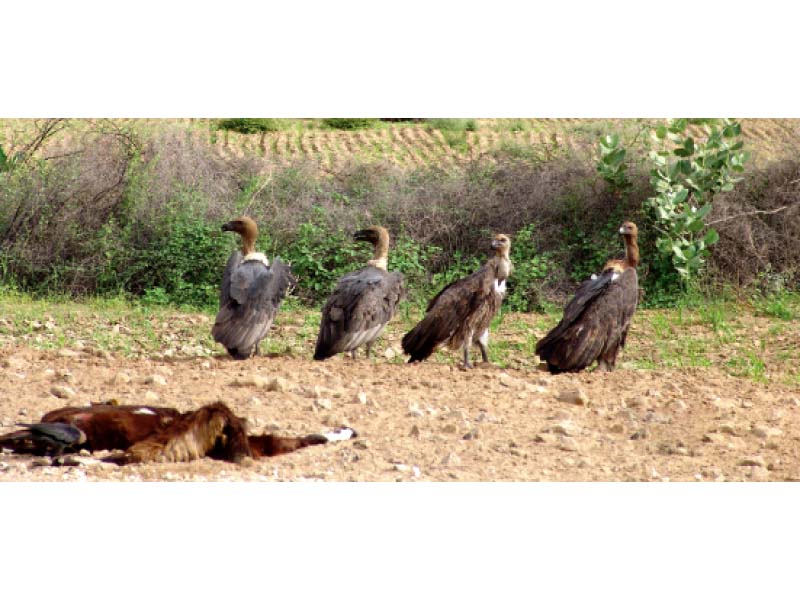
The natural resource management coordinator of the International Union for Conservation of Nature (IUCN), Nadeem Mirbahar, told The Express Tribune about these developments on Tuesday. To address this problem, the IUCN, in collaboration with a local organisation, Baanhn Beli, launched a project for vultures' conservation in Nangarparkar, Tharparkar, on Monday.
The one-year-project aims to help the national strategy for conservation of the birds, whose population has declined rapidly and is at risk. Talking to The Express Tribune, Mirbahar said that a considerable decline in the population of the bird was observed in early 1990s.
He said that the project aimed to create awareness among all stakeholders, including local residents. A documentary for the purpose of awareness will also be made during the project, he said, adding that the focus will be on the capacity-building of all the stakeholders.
Nangarparkar taluka is one of the only two or three areas in the whole country where small colonies of vultures are still present. Some other international organisations, such as the United Nations Development Programme's Global Environment Facility and World Wide Fund for Nature - Pakistan, along with the help of local organisations, had launched projects for the protection of this bird in the past in the same area.
Experts working on such projects believe that one of the major reasons of the decline in the bird's population is a painkiller drug known as 'diclofenic', which is mostly used in livestock.
An international and regional symposium will also be organised at the end of the project, where representatives of countries where the bird is found will share their experiences. "Threat to vultures exists across the region," said Mirbahar. Explaining other reasons, he said that human attitude has also contributed to the eradication of the bird. "We aim to create a friendly environment for the vultures," he added.
Published in The Express Tribune, September 2nd, 2015.


















COMMENTS
Comments are moderated and generally will be posted if they are on-topic and not abusive.
For more information, please see our Comments FAQ